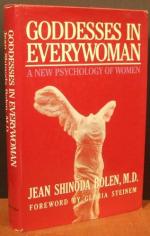
|
| Name: _________________________ | Period: ___________________ |
This test consists of 15 multiple choice questions and 5 short answer questions.
Multiple Choice Questions
1. What was the benefit, or benefits, of Persephone's agreement?
(a) She was able to diversify the Olympian bloodline.
(b) She could diversify the Olympian bloodline and still spend time with her mother.
(c) She was able to spend time with her mother.
(d) There was no benefit to her agreement.
2. How many consorts did Demeter's mate have before her?
(a) Two.
(b) None.
(c) Three.
(d) One.
3. What was written on the item Eris threw?
(a) "For the gentlest."
(b) "For the wisest."
(c) "For the strongest."
(d) "For the fairest."
4. Why did Paris make his selection?
(a) He was afraid of the wrath of the gods.
(b) The goddess agreed to make him rich.
(c) The goddess promised him the most beautiful woman in the world as his wife.
(d) It was his honest opinion.
5. What was the most powerful and influential bond in Demeter's life?
(a) The bond with her mate.
(b) The maternal bond.
(c) The bond with her friends.
(d) The bond with her sisters.
6. What was Persephone's stipulation for her agreement?
(a) She must not be required to marry her kidnapper.
(b) She must be allowed to have relationships outside of marriage.
(c) She cannot be trapped in the Underworld.
(d) She must not be required to bear children.
7. Who arrived with a message, regarding Persephone, for Persephone's mother?
(a) Zeus.
(b) Hermes.
(c) Adonis.
(d) Hephaestus.
8. Persephone had an extramarital affair with whom?
(a) Adonis.
(b) Hades.
(c) Zeus.
(d) Hephaestus.
9. Why is it easy, according to the author, to forgive Hera for not being "able to have full control over her own husband"?
(a) She had no desire to control him.
(b) Her husband is the most powerful of the Olympian gods.
(c) Her inability to have control over him is what enabled her to be more powerful in other areas.
(d) Her mother was also unable to fully assert herself.
10. The woman used as an example in Book 2, Chapter 11, had what sort of relationships with men?
(a) She was married and divorced several times.
(b) She was a feminist who hated men.
(c) She had intimacies but never married.
(d) She was happily married for many years.
11. According to the author, what happens to non-heroines?
(a) They are depressed, and emotionally unstable.
(b) They are often repressed and looked down upon by heroines.
(c) They don't have rewarding intimate relationships.
(d) They go along with others to such a degree that they cease to live their own lives.
12. Why might some women feel sorry for Hera?
(a) She was unable to have children.
(b) She fell in love with a mortal but could not have him.
(c) She was constantly wronged by her husband.
(d) Her daughter was taken from her.
13. In Book 2, Chapter 11, the author uses what prominent female as an example?
(a) Florence Nightingale.
(b) Lou Salome.
(c) Marie Curie.
(d) Hillary Clinton.
14. Who kidnapped Persephone?
(a) Hades.
(b) Adonis.
(c) Zeus.
(d) Hephaestus.
15. What requires vulnerability to exist?
(a) All answers are correct.
(b) Healthy sex lives.
(c) Healthy intimacies.
(d) Healthy relationships.
Short Answer Questions
1. What role do the goddesses in Book 2, Chapter 7, play?
2. Where did Persephone's kidnapper take her?
3. Non-heroines are governed by what goddesses?
4. According to the author, what is part of overcoming depression?
5. What is the central factor of a Hera woman's life?
|
This section contains 544 words (approx. 2 pages at 300 words per page) |

|




